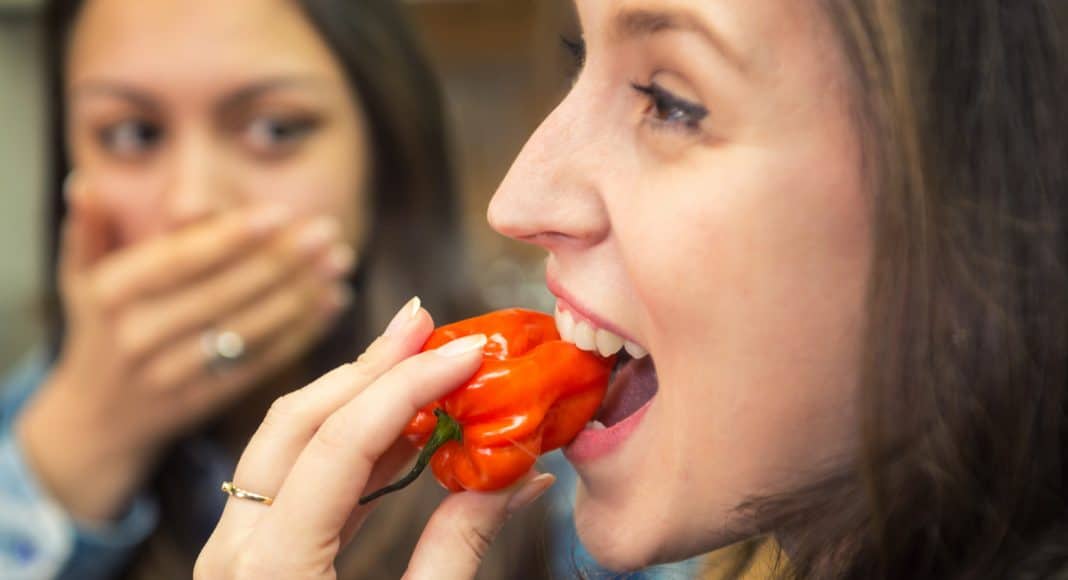Researchers accidentally proved that marijuana has the potential to ease the pain of capsaicin, which is the chemical responsible for putting the “hot” in hot peppers.
Spice-induced mouth burn is a hazard associated with chili cookouts and other extreme-eating events. Bread, alcohol, and milk have all been touted as cures, but, as anyone who’s chomped a rogue Padrón pepper knows, they aren’t cures.
The Fresh Toast – Can marijuana help put the fire out in your mouth from hot sauces? Research may have stumbled on the answer.
Could cannabis somehow quench the flames?
There is no medical study that addresses this question directly, but there is a mighty suggestive report from the University of California San Diego.
In 2007, researchers from UCSD’s Center for Medical Cannabis Research were testing marijuana’s potential to ease neuropathic pain. To simulate the pain associated with chemotherapy or HIV/AIDS, researchers injected participants with capsaicin, which, as you may know, is the chemical that puts the heat in hot peppers.
RELATED: The Way Cannabis Helps Inflammation Is Pretty Amazing

The trial was a success: Cannabis produced a “significant,” if “modest,” improvement in pain.
“Subjects reported a decrease in pain at the medium dose, and there was also a significant correlation between plasma levels of THC, the active ingredient in cannabis, and decreased pain,” said Igor Grant, M.D., F.R.C.P.(C), professor and Executive Vice-Chair of the Department of Psychiatry, the director of the CMCR.
Sure, they were gunning for cancer and AIDS, but hadn’t they just shown that cannabis can protect us against chili peppers? Isn’t that, like, news, too?
It turns out there are (at least) two hurdles to clear before THC tablets can take their place in America’s medicine cabinets next to Rolaids and Prilosec.
RELATED: The 5 Most Mouth-Wrecking Hot Peppers And The Idiots Who Ate Them
The first problem is dosage. Cannabis has a narrow Goldilocks window for pain relief: too little has no effect, but too much makes the pain even worse. The optimum amount is about half a joint. That’s 4% THC by weight.
The second problem —and this is a big one—is reaction time. Grant drops a sluggish fly in our speculative ointment: “Interestingly, the analgesic effect wasn’t immediate; it took about 45 minutes.” For anyone with a mouthful of habanero or an arm-full of capsaicin, “interesting” is probably not the word that would spring to mind.
So maybe THC isn’t the quick antidote for your burning mouth as you had hoped. But perhaps the silver lining here is that, much like THC, spicy foods can actually make you feel high.
Thanks to scientist and admitted foodie Leidamarie Tirado-Lee, we know why.
In the magazine Helix, he explains that capsaicinoids have nothing to do with tastebuds and everything to do with physical sensation.
In essence, when you eat something spicy and the capsaicinoids hit the tongue, a message — similar to that of being near a hot fire — is sent to the brain, essentially tricking it into thinking that the mouth is being burned and needs assistance, STAT! (It’s the same thing that happens when you touch your eye after handling a hot pepper, which is why you should, um, never do that). The brain responds by releasing endorphins.
So, while you may not have a quick fix for your burning mouth, at least you’ll feel a little buzzed.


